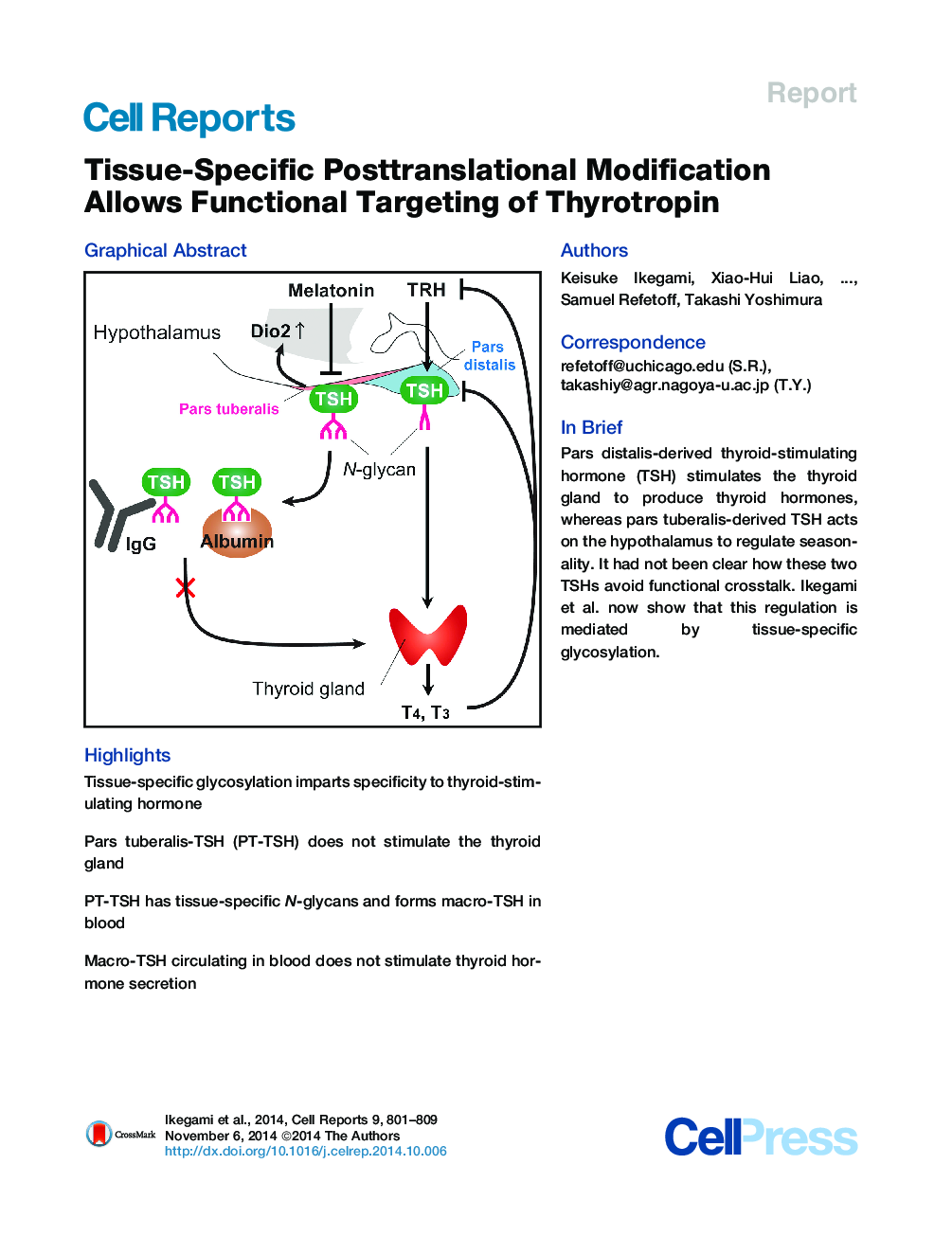| Article ID | Journal | Published Year | Pages | File Type |
|---|---|---|---|---|
| 2040036 | Cell Reports | 2014 | 9 Pages |
•Tissue-specific glycosylation imparts specificity to thyroid-stimulating hormone•Pars tuberalis-TSH (PT-TSH) does not stimulate the thyroid gland•PT-TSH has tissue-specific N-glycans and forms macro-TSH in blood•Macro-TSH circulating in blood does not stimulate thyroid hormone secretion
SummaryThyroid-stimulating hormone (TSH; thyrotropin) is a glycoprotein secreted from the pituitary gland. Pars distalis-derived TSH (PD-TSH) stimulates the thyroid gland to produce thyroid hormones (THs), whereas pars tuberalis-derived TSH (PT-TSH) acts on the hypothalamus to regulate seasonal physiology and behavior. However, it had not been clear how these two TSHs avoid functional crosstalk. Here, we show that this regulation is mediated by tissue-specific glycosylation. Although PT-TSH is released into the circulation, it does not stimulate the thyroid gland. PD-TSH is known to have sulfated biantennary N-glycans, and sulfated TSH is rapidly metabolized in the liver. In contrast, PT-TSH has sialylated multibranched N-glycans; in the circulation, it forms the macro-TSH complex with immunoglobulin or albumin, resulting in the loss of its bioactivity. Glycosylation is fundamental to a wide range of biological processes. This report demonstrates its involvement in preventing functional crosstalk of signaling molecules in the body.
Graphical AbstractFigure optionsDownload full-size imageDownload as PowerPoint slide
